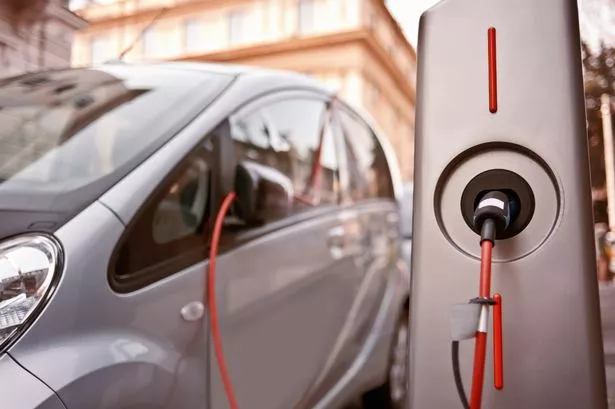Science
Electric Vehicle Fire Risks Highlighted in New Allianz Report

A recent report by Allianz Commercial has raised alarms regarding the potential fire risks associated with electric vehicles (EVs). The “Global Risk Dialogue” report suggests that although EVs are not statistically more prone to fires than traditional internal combustion engine vehicles, serious concerns related to battery safety could lead to significant hazards, including explosions and the release of toxic chemicals.
The report anticipates that by the end of the decade, over 200 million electric vehicles may be operating on roads worldwide. While the data indicates that EVs are generally safer in terms of fire incidents, it emphasizes critical risks tied to battery systems, particularly during the charging process. According to Rafael Rioboo, Regional Head of Risk Consulting for Allianz Commercial’s Iberia region, “The riskiest moment in an EV’s life concerning battery risk isn’t driving – it’s charging.” He warns that overheating or short-circuiting of chargers can lead to severe damage to a vehicle’s battery.
Concerns Over Thermal Runaway and Toxic Chemicals
The report identifies key threats posed by thermal runaway, which can result in fires, explosions, and the discharge of dangerous substances such as heavy metals and toxic chemicals. Rioboo explained that “thermal runaway doesn’t wait for you to act – it ignites, escalates and overwhelms.” This phenomenon poses not only a risk to vehicles but also to people, property, and emergency responders who may be exposed to hazardous scenarios during incidents.
Risk mitigation efforts are underway, with law enforcement agencies taking steps to isolate vehicles and manage “post-crash battery hazards.” This proactive approach aims to address the potential dangers associated with EV battery incidents effectively.
Experts in the field have weighed in on these findings. Colin Walker, head of transport at the Energy and Climate Intelligence Unit, noted, “All the data shows that EVs are just much, much less likely to set on fire than their petrol equivalent.” He pointed out that while fires involving petrol or diesel vehicles are frequently underreported, the safety statistics for EVs are becoming clearer.
Potential for Explosive Risks in Battery Technology
The report also highlights the severe risks of “vapour cloud explosions and rocket flames,” which can occur when gases escape from battery cells. Paul Christensen, a professor of pure and applied electrochemistry at Newcastle University, has been studying these risks and is involved in training fire brigades to respond effectively to such incidents.
As the EV market continues to grow, the findings of the Allianz report underscore the importance of awareness and preparedness regarding battery safety among manufacturers, consumers, and emergency responders. The potential for significant hazards necessitates ongoing research and development to enhance battery technologies and safety protocols.
With the anticipated increase in electric vehicle adoption, addressing these fire risks will be crucial to ensuring the safety of drivers and the general public. As the industry evolves, stakeholders must remain vigilant and proactive in mitigating these emerging threats.
-

 Entertainment2 months ago
Entertainment2 months agoIconic 90s TV Show House Hits Market for £1.1 Million
-

 Lifestyle4 months ago
Lifestyle4 months agoMilk Bank Urges Mothers to Donate for Premature Babies’ Health
-

 Sports3 months ago
Sports3 months agoAlessia Russo Signs Long-Term Deal with Arsenal Ahead of WSL Season
-

 Lifestyle4 months ago
Lifestyle4 months agoShoppers Flock to Discounted Neck Pillow on Amazon for Travel Comfort
-

 Politics4 months ago
Politics4 months agoMuseums Body Critiques EHRC Proposals on Gender Facilities
-

 Business4 months ago
Business4 months agoTrump Visits Europe: Business, Politics, or Leisure?
-

 Lifestyle4 months ago
Lifestyle4 months agoJapanese Teen Sorato Shimizu Breaks U18 100m Record in 10 Seconds
-

 Politics4 months ago
Politics4 months agoCouple Shares Inspiring Love Story Defying Height Stereotypes
-

 World4 months ago
World4 months agoAnglian Water Raises Concerns Over Proposed AI Data Centre
-

 Sports4 months ago
Sports4 months agoBournemouth Dominates Everton with 3-0 Victory in Premier League Summer Series
-

 World4 months ago
World4 months agoWreckage of Missing Russian Passenger Plane Discovered in Flames
-

 Lifestyle4 months ago
Lifestyle4 months agoShoppers Rave About Roman’s £42 Midi Dress, Calling It ‘Elegant’









